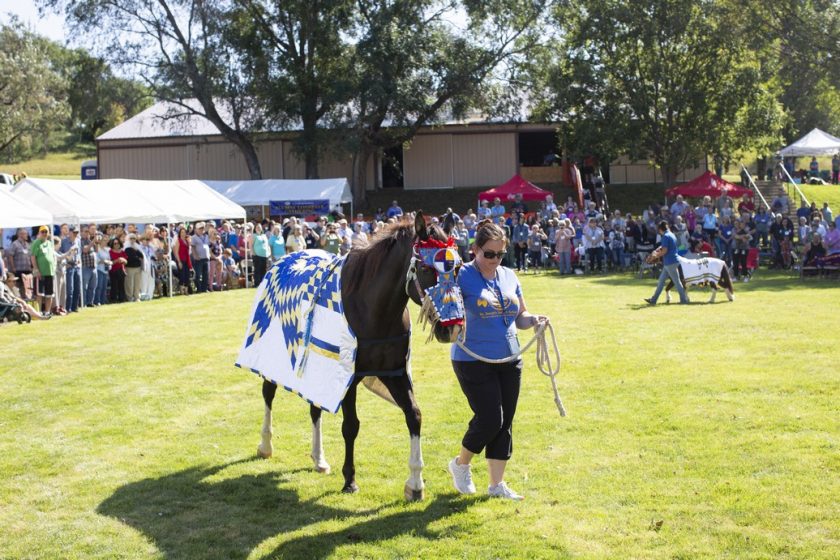To the Lakota, a šúŋkawakȟán — horse — is a relative. A four-legged friend and companion that provided transportation, friendship and pride. The horse is revered for its grace and bravery.
Today, many Lakota people still look to the horse to provide healing from trauma, anxiety, and mental and emotional distress, among others.
Healing from internal or external wounds was the purpose behind launching the equine therapy program at St. Joseph’s Indian School.
Now in the program’s second year, it continues to grow. Last year, horses had to be transported to and from campus for therapy sessions. Now, horses live on the north end of campus, creating the opportunity for more students to take part in the equine therapy sessions.

The horses may roam across 50 acres of fenced grassland on St. Joseph’s campus. However, they are brought back together to assist in therapy, guidance classes and smudging. Smudging is a common practice among Lakota people for the cleansing of energy through the burning of sage, cedar and sweet grass.
The program has been very successful and students have been very receptive to it. Partly because the horse listens and makes no judgements. It feels the pain and soothes St. Joseph’s students — its relatives — and offers silent help.
“Students have the opportunity to connect with the horses through counseling sessions as well as guidance class. Horses are very in-tune to body language — this is beneficial to the students because horses respond at a sacred level. Students feel connected spiritually and have opportunities to overcome challenges through means other than talk therapy,” said Robyn, Director of Counseling Services.
It can be difficult for little ones to be away from home — especially when they are first year students. Having the comforting presence of a horse can be truly beneficial.
“I learned that horses are nice animals,” said one student. “You can have conversations with the horses. It is okay to tell horses anything because they can’t tell anyone.”
It’s the hope that as children learn to open-up to the horses and feel the positive effects of that relationship, they will soon be more inclined to open-up to other people. This includes their families. Sometimes, healing of wounds between family members is needed and the horses can bring everyone together on common ground. To facilitate this idea further, planning is taking place for counselors to host family camps this spring or summer.
But, that’s not all. Even more plans to further the equine therapy program is still in the works, too. Currently, four horses lives on campus. Robyn said she would like to see that number grow to 10 horses, with the addition of one or two horses every year until that number is reached.


I love that the students can have a loving relationship with a sensitive animal! It’s so healing! My dog is my loving friend and therapist, and makes me laugh many times every day.
Another worthwhile and appropriate program at St. Josephs !!! Carry on the good work 🙂
Elizabeth Heike
Beyond Money, How can I help the equine program? Is there equiptment or other things that you need?
Stay Tuned! We have big plans to fundraise for a horse barn and outline what other needs will be associate with expanding this program. Thank you for your interest!